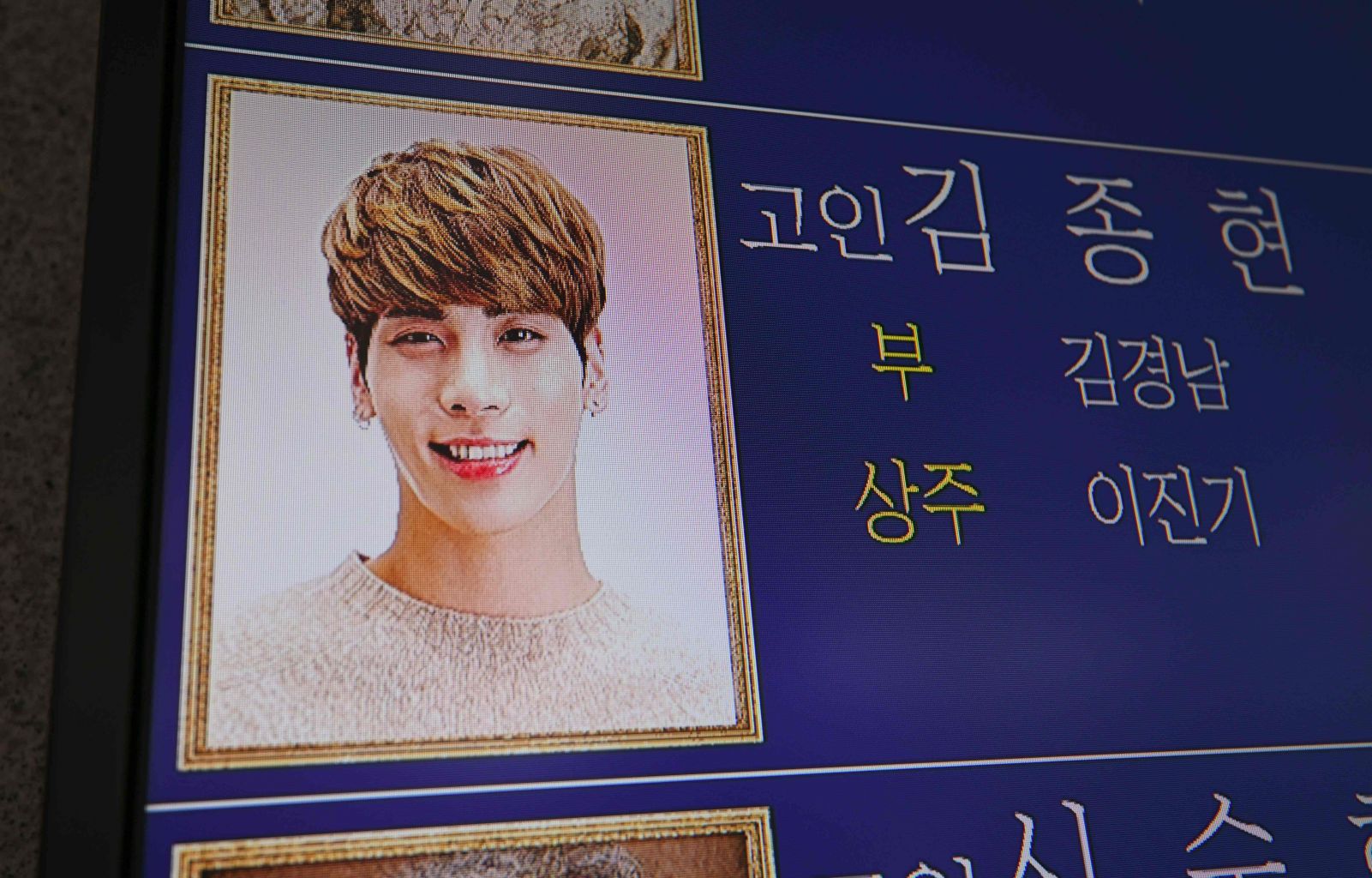SHINee singer Jonghyun's death: The competitive, stressful K-pop ecosystem comes under fire
Sign up now: Get ST's newsletters delivered to your inbox

Kim Jong Hyun's photo is displayed on an electronic board outside a funeral hall at a hospital in Seoul, on Dec 19, 2017.
PHOTO: AFP
SEOUL (Korea Herald/Asia News Network) - In the note he left behind, SHINee's main vocalist, Jonghyun, said he suffered from severe depression.
Following the shock of his suicide on Monday (Dec 18), calls to reform the competitive, controlled and stressful K-pop ecosystem are resonating through the scene.
In a recent interview, K-pop star Hyonmin of T-ara was asked if she had ever stepped out of line in her nine years as an idol. In response, she described stepping out of her room without permission as a misdeed.
Once, she said, her agency took their phones, "so we used a prepaid phone". "We also snuck out of our living quarters when we weren't supposed to. We made the shape of a person on the bed. But we had nowhere else to go, so we just talked for hours at a cafe in Gangnam Station."
It is not unusual in the South Korean music business for agencies to make members of a group live together, and keep stars on a tight leash.
Earlier this month, BTS' agency reportedly moved the boy band to new living quarters. Members of the K-pop sensation still live in what is essentially a dormitory, albeit in Hannam The Hill, one of the most expensive apartment complexes in the country.
The strict controls on idols are perhaps unique to K-pop, a system where stars are rarely discovered, but made.
The scene revolves around talent agencies, with the three biggest being YG Entertainment, JYP Entertainment and S.M. Entertainment - SHINee's agency.
Talent scouts scour high school singing contests, reality television auditions and every other perceivable corner for talent. Trainees learn from professionals for years under contracts, and only a handful out of thousands are picked as potential stars.
Even then, the competition is not over. Being A Girl Group In Korea, a book by journalist Lee Hak Jun, depicts the long, winding path wannabe idols have to follow. He spent months with the members of Nine Muses before their official debut, during which he found the young women faced immense mental and physical pressure.
Star Empire Entertainment even brought in a backup member to practise with them just weeks before their debut, as a reminder that any one of them could be replaced at any time.
The high school student quit shortly after, crumbling under the pressure and the animosity of her older peers. However, one member was eventually replaced by another trainee, after an alleged romance with a staff member.
"If you become a star while doing whatever you want, sleeping as much as you want, then the world would be really unfair. If you are unsure, you better quit now, for other people's sake," a staff member of the agency was quoted as saying in the book. "When you make it big, your words will be law. But right now we know better than you about this business, so swallow your pride."
Accordingly, the trainees are required to forgo their personal lives - dating, friendships, hobbies - and to keep perfecting dance moves that the public might never even see.
"In short, it is a system that collects a number of youngsters with potential and beats them into shape, transforming them into the star that the public wants," Lee wrote in his book. "This system devised by a handful of geniuses is cruel by nature. Success and failure are determined in mere seconds. Billions of won in investment can go up in smoke, or yield much larger profit, so the system has to be cruel."
The agencies shoulder the costs of "failed" singers, and try to milk the successful ones of every last penny.
In March, the Fair Trade Commission ordered major agencies to revise clauses that forced singers to sign exclusive contracts with them.
Another clause, since revised, said singers had to pay back two to three times the agencies' investment if they chose to terminate their contracts.
Even after debuting, most idols are micromanaged by their agencies. Agency regulations make it nearly impossible for singers to have personal lives. Furthermore, public relationships like that of Taeyang and Min Hyo Rin - who recently announced that they will tie the knot in February - are extremely rare for K-pop stars.
In Lee's book, he asked Nine Muses' dance teacher - who once aspired to be a K-pop idol - if he wanted to be a star in his next life.
"No, I don't," he answered. "I've seen how stars live their lives. I don't want that life. I just want to dance."


